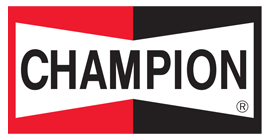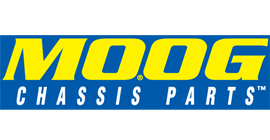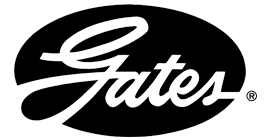
AUTONET TV
Archive for July 2024When it Comes to Air Filters, Change is Good (Clogged Air Filter)Posted July 28, 2024 4:00 AMEngine air filters may not seem like a big deal, but when they’re clogged up with dirt, dust, and insects, your engine could wind up choking for air and not delivering you the power and performance it was designed to give. There are actually a couple of air filters in your vehicle. One filters the air going into the cabin (the cabin air filter), and the other filters air going into the engine. That engine filter is the one we’re talking about. After several months and long distances traveled, your engine air filter accumulates the junk it’s preventing from getting into your engine. You may notice your engine misfiring, your acceleration may not be what it used to be, it may make strange noises, and the Check Engine light may come on. When you notice any of those signs, it’s time to bring in your vehicle to have us figure out what’s going on. We’ll visually inspect your air filter. Keep in mind that your vehicle’s manufacturer recommends a replacement interval for your make and model. Typically, many automakers suggest replacing the air filter every 10,000-15,000 miles/16,000-24,000 km. But if you drive in areas that are dirty and dusty, you should have it checked more frequently. Also, if you spend a lot of your driving hours in congested urban areas, stop-and-go driving can also tax your engine air filter. When replacing it, it’s important to get the correct filter. Automakers often offer a variety of engines in the same model, so our technician will make sure you’re getting the one that’s made for your vehicle’s configuration. Keep in mind that the air filter is protecting your engine from contaminants, and having one that properly fits is important with today’s modern, high-tech engines. Replacing your engine air filter can help prolong the life of your engine. You’ll both breathe better. TJ's Auto Center Inc. (Timing Belt)Posted July 21, 2024 4:00 AMYou may have heard about an important part of your vehicle's engine called a timing belt, and many know that if that belt breaks, it can cause some very serious engine problems. Not all vehicles have them, and the ones that do generally have smaller engines. The timing belt keeps the engine synchronized so that every time a spark plug fires, the crankshaft, camshaft, pistons, and valves are all working together. Timing belts will eventually have to be replaced, and most vehicle manufacturers recommend when that should be. Typically, it's around every 60,000-100,000 miles, or 100,000-160,000 km. It's a good idea to stick to your vehicle's schedule or be alert for signs that the timing belt may be failing prematurely. Some of those symptoms? Maybe your engine won't even turn over when you try firing it up. You might hear a ticking or banging sound under the hood. Perhaps you spot an oil leak or notice the engine misfiring. If any of those are happening to your vehicle, we strongly advise you to bring it in to us so we can have a technician see what's causing the issue. Again, if your timing belt breaks, it can cause serious, expensive engine damage to valves and pistons. It is far better to have the timing belt replaced before it breaks. Replacing it is fairly involved, and other associated parts, such as the water pump, thermostat, tensioner, and idler pulleys may be replaced at the same time. That way, your timing belt is more likely to last another 60,000-100,000 miles/100,000-160,000 km without any problems. Timing belts are being used in fewer vehicles, with more and more using timing chains since they last longer. If you're wondering if your vehicle has one, contact our service adviser who can check. Maybe it's time to schedule a timing belt replacement to keep your vehicle's engine parts working in harmony as they should. TJ's Auto Center Inc. Out of Joint (CV Joint and Boot Replacement)Posted July 14, 2024 4:01 AMIf you have a front-wheel-drive vehicle, it has components called CV joints which enable you to turn your wheels smoothly. The CV stands for “constant velocity.” In essence, it’s a set of gears that connect a shaft that allows power from the transmission to be sent to the wheels. When you turn the wheels, no matter what angle, the input velocity rotation will be equal to the output. Thus, the name, CV (constant velocity) joint. Other vehicles with 4-wheel drive and all-wheel drive also use CV joints. If one of your CV joints isn’t working right, you may find your vehicle difficult to handle. If one breaks, your vehicle may stop moving. So, it’s important that CV joints be in top working condition. The joints need a lot of lubrication, so they are surrounded by grease. There’s a rubber enclosure around them called the boot which holds the grease in and protects CV joints from the elements. Signs your CV joint needs changing out? You might hear a clicking sound when you turn if the CV joint is worn out. You might notice some thick, black grease around your wheel or on the pavement where you park your vehicle. You might also feel your vehicle vibrate when you’re going fast. If you suspect you might have a bad CV joint, bring your vehicle in so a technician can determine what’s going on. Keep your CV joints in good shape and reduce the risk of them seizing up at an inopportune time so you can avoid being stranded. TJ's Auto Center Inc. A Clean Connection (Battery Cleaning)Posted July 7, 2024 4:01 AMA clean connection is a wonderful thing. Think of a good cell phone signal or an airline connection with ample time and short distance to the next gate. Good connections are also important for your vehicle’s battery, and one secret to that is to make sure it’s periodically cleaned. If it’s been a while since you have had any service to your battery, bring it in so we can inspect it for any corrosion that might have formed. Corrosion on the battery terminals will affect the connection between the battery and your vehicle’s electrical system. The amount of corrosion you can expect can be influenced by such things as the kind of climate you live in (dry or humid, warm or cold), if there’s lots of salt on the roads and how old your battery is. We have tools and chemicals to safely remove the corrosion for an optimal electrical connection. In order to reduce the amount of corrosion re-forming on the battery, we’ll apply a special protective coating. It’s also important to have your battery tested, especially if it’s more than a few years old or hasn’t been tested in a while. Our equipment can measure how well a battery holds a charge and how much more life you should expect from it. We can discuss when you might expect to buy a new one, since a battery is definitely the kind of thing you don’t want to have fail you when you’re least expecting it. TJ's Auto Center Inc. | ||
SearchArchiveJune 2010 (71)July 2010 (4) August 2010 (4) September 2010 (4) October 2010 (4) November 2010 (4) December 2010 (4) January 2011 (4) February 2011 (4) March 2011 (4) April 2011 (5) May 2011 (5) June 2011 (4) July 2011 (4) August 2011 (5) September 2011 (4) October 2011 (4) November 2011 (5) December 2011 (4) January 2012 (5) February 2012 (2) March 2012 (5) April 2012 (4) May 2012 (5) June 2012 (4) July 2012 (5) August 2012 (4) September 2012 (4) November 2012 (1) December 2012 (2) March 2013 (1) April 2013 (3) May 2013 (2) October 2013 (5) November 2013 (2) January 2014 (2) February 2014 (3) March 2014 (1) July 2014 (4) August 2014 (7) September 2014 (4) October 2014 (5) November 2014 (4) December 2014 (5) January 2015 (4) February 2015 (4) March 2015 (4) April 2015 (4) May 2015 (3) June 2015 (5) July 2015 (2) September 2015 (2) October 2015 (4) November 2015 (5) December 2015 (2) February 2016 (2) March 2016 (4) April 2016 (4) May 2016 (5) June 2016 (4) July 2016 (5) August 2016 (4) September 2016 (4) October 2016 (5) November 2016 (4) December 2016 (4) January 2017 (5) February 2017 (4) March 2017 (4) April 2017 (3) May 2017 (5) June 2017 (4) July 2017 (5) August 2017 (4) September 2017 (2) October 2017 (5) November 2017 (4) December 2017 (3) January 2018 (5) February 2018 (4) March 2018 (4) April 2018 (4) May 2018 (4) June 2018 (4) July 2018 (5) August 2018 (4) September 2018 (5) October 2018 (3) March 2019 (4) May 2019 (2) June 2019 (5) July 2019 (2) August 2019 (1) September 2019 (4) October 2019 (5) November 2019 (4) December 2019 (5) January 2020 (5) February 2020 (4) March 2020 (5) April 2020 (1) May 2020 (2) July 2020 (1) August 2020 (5) September 2020 (4) October 2020 (4) November 2020 (5) December 2020 (4) January 2021 (6) February 2021 (4) March 2021 (4) April 2021 (4) May 2021 (5) June 2021 (4) July 2021 (4) August 2021 (5) September 2021 (3) October 2021 (5) November 2021 (4) December 2021 (4) January 2022 (6) February 2022 (4) March 2022 (4) April 2022 (4) May 2022 (5) June 2022 (4) July 2022 (5) September 2022 (4) October 2022 (5) November 2022 (4) December 2022 (4) January 2023 (5) February 2023 (4) March 2023 (4) April 2023 (5) May 2023 (4) June 2023 (4) July 2023 (5) August 2023 (4) September 2023 (3) October 2023 (2) January 2024 (1) February 2024 (4) April 2024 (1) May 2024 (3) June 2024 (5) July 2024 (4) August 2024 (4) September 2024 (5) October 2024 (4) November 2024 (4) December 2024 (4) | CategoriesWinter Prep (6)Tire Pressure Monitoring System (1)Shocks and Struts (4)Engine Air Filter (4)Warranty (1)Headlamps (6)Alignment (9)Check Engine Light (5)Maintenance (19)Parts (1)Differential Service (3)Cabin Air Filter (3)Steering (12)Fluids (8)Cooling System (10)Tires and Wheels (6)Tire Rotation and Balancing (4)Drive Train (5)Exhaust (11)Older Vehicles (2)Automotive News (4)Wheel Bearings (2)Fuel System (10)Service Intervals (3)Service Standards (5)Air Conditioning (10)Inspection (5)Battery (13)Brakes (17)Keys to a long lasting vehicle (2)Timing Belt (5)Fuel Economy (8)Transmission (5)Alternator (7)Auto Safety (5)Safety (2)What Customers Should Know (83)Fuel Saving Tip: Slow Down (2)Dashboard (1)Windshield Wipers (3)Oil Change (9)Customer Detective Work (1)Shocks & Struts (3)Safe Driving (1)Water Pump (2)Tires (12)Suspension (2)TPMS (3)Spark Plugs (2)Winter Tires (1)Fuel Pump (1)Brake Service (6)PCV Valve (1)Trip Inspection (2)Transfer Case Service (1)Fuel Filter (1) | |

OUR REVIEWS


Howard L.The business always does a great job and takes care of him. They are very polite.











